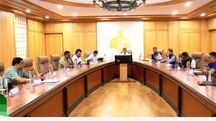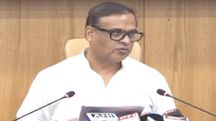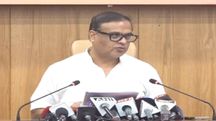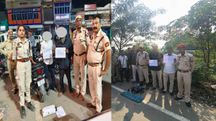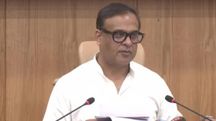Citizens warn Assam government against politicising Nellie massacre report
Prominent citizens have called on the Assam government to avoid turning the long-suppressed Tewary Commission Report on the 1983 Nellie massacre into a political tool, warning that selective use of its findings could inflame tensions rather than resolve long-standing concerns over illegal migration.

Prominent citizens have called on the Assam government to avoid turning the long-suppressed Tewary Commission Report on the 1983 Nellie massacre into a political tool, warning that selective use of its findings could inflame tensions rather than resolve long-standing concerns over illegal migration.
The appeal came at a discussion organised by a digital platform, which obtained the report through the Right to Information Act. The Assam Cabinet has decided to circulate copies of the report in the Assembly during the upcoming session, though Chief Minister Himanta Biswa Sarma has stated the House will not debate it.
Speakers noted that the report documented 8,019 incidents of violence across the state in 1983, leading to 2,072 deaths, more than 2.26 lakh people being displaced and over 2.48 lakh taking shelter in relief camps. They stressed that the findings carry significant historical value and must be handled responsibly.
Former Arunachal Pradesh Governor and former Assam chief secretary Jyoti Prasad Rajkhowa questioned the inquiry’s structure, saying a judicial commission should have been appointed. He added that assigning the probe to “a chief secretary-level officer from outside the state remains a question even today”. Rajkhowa also highlighted that the report does not clarify how such widespread violence erupted under the President’s rule. Publishing the findings four decades earlier, he said, might have allowed “some resolution of the problems”.
Senior advocate Santanu Barthakur emphasised that the “background to the Tewary Commission is immigration” and warned that discussing isolated sections could trigger “a seriously adverse reaction”. He argued that the government’s main responsibility should be addressing public anxieties over illegal migration and implementing pending safeguards for indigenous communities under Clause 6 of the Assam Accord.
Veteran journalist Bedabrata Lahkar, who reported on the Nellie massacre, observed that “the entire administrative machinery was preoccupied with conducting the elections” in 1983. He said the report correctly noted that the violence lacked “any specific communal character”, with causes differing across districts. “Nobody really knew where and why violence was erupting,” he recalled.
Speakers concluded that the issues that drove the Assam Agitation remain unresolved and that the Tewary Commission Report, resurfacing after nearly 40 years, should be used to inform policy and calm public concerns — not fuel political confrontation.
Copyright©2025 Living Media India Limited. For reprint rights: Syndications Today
